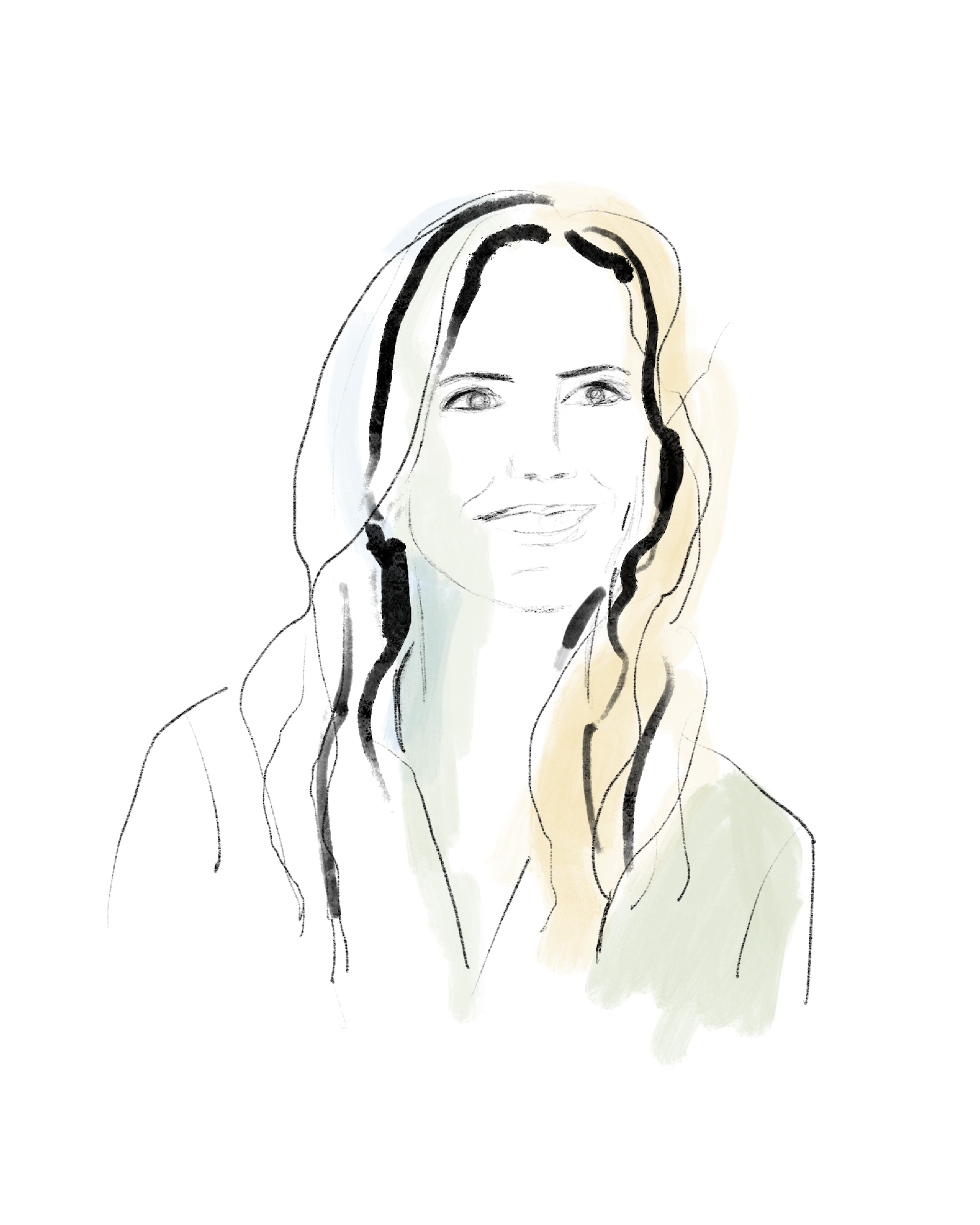My first daughter was born in 2013. I had been in labour for 36 hours and occupied the birthing room for over 24 hours. At night I was looked after by a third-year midwife who came in from time to time. But I was probably in the room too long: at noon the following day I was given labour pills without my clear consent, and the dosage was far too high. As a result, my child was born within six minutes. The contractions, provoked against my will, practically whipped my daughter out of me. It was a shock.
When I held her in my arms, I just wanted to die. It took me a long time to be able to process the physical and emotional strain and pain and to bond with my child. I was traumatised. I hardly experienced the first two months after the birth - at some point I realised that I had a film break. If it hadn't been for a maternity counsellor I dragged myself to, who then referred me to a psychologist as a sobbing wreck, I probably would have stayed in this spiral even longer.
The worst thing for me was that my wishes were not heard during the birth. And that I was given medication against my will. I was stuck in a spiral of interventions. Interventions include inductions of labour, "off label use" medications, painkillers, a suction cup and forceps, an epidural and, as a last option, a caesarean section. But it is not only such interventions that can disrupt the birth process. Glaring lights, loud voices, lack of care, vaginal examinations, cursory phrases or the extinguishing of a small scented light can also cause stress during a birth.
During my second birth, for example, I was in a wonderful flow, but when the midwives extinguished my scent lamp, it was gone. In any case, my second birth was unfortunately not much better than the first. I was psychologically stable afterwards, but not physically.
I had to experience a multiple stitched epidural after I had a labour storm that started with the scent light going out. I had lost cerebrospinal fluid from the various punctures on my back, which created negative pressure in my brain after birth with a terrible headache. I was confined to bed for weeks after birth. In addition, the scarred tissue caused severe fascia and connective tissue pain in my back and legs, which is still with me today. By the way, I gave birth to my second child in the end, completely paralysed by the spinal anaesthesia, without a single contraction. A feat of strength that left its mark.
Birth is a process and you cannot fight it. You cannot run away from it. You can't stop it. And you certainly can't give up. When a woman gives birth, she faces the elemental force of life. To withstand this force, you need safety and security, a space where you feel comfortable. Just like other intimate moments. Who has sex under fluorescent lights while people stand around and watch? Birth makes women mothers. The entry into life determines bonding, trust and the mental health of mother and child. I have experienced this first hand. Unfortunately, I am not alone in my experiences. That is why I am fighting today so that no woman has to go through what happened to me.
The majority of Swiss children are born in hospital. Only a small proportion of women choose to give birth at home or in a birth centre. 20 percent of mothers leave the place of birth, usually a hospital, traumatised. Every fourth woman experiences violence during childbirth. For some women, these experiences have far-reaching consequences: 10 percent of mothers show an adjustment disorder in the first weeks after the birth. Three percent develop post-traumatic stress disorder. The symptoms include panic attacks, sleep disturbances or avoidance of the "trauma perpetrator", i.e. one's own child.
The reasons why birth is experienced as traumatic are manifold. However, they usually have one common denominator: it is about the care provided by professionals. Many women who have experienced a birth as traumatic describe limited or lacking care, disrespect or the implementation of interventions without their consent. In a nationwide online survey, the Bern University of Applied Sciences for Health, together with other researchers, recorded the birth experience of over 6000 women. A central question was what kind of coercion women experience during birth. The results are shocking: almost half of the women had too little time to think about an intervention, 41 percent received too little information. Every fourth woman felt that she was intimidated, and for every tenth, interventions were carried out despite resistance. At the same time, difficult births can be a significant burden not only for women and families, but also for obstetric professionals.
My wounds have healed in the meantime. I don't want to condemn anyone, they all did what they could and what was within their power. It took me ten years to write publicly about my experiences - and I know that too many women carry their stories around with them unspoken. What happened to me and others should not be constantly repeated: mothers need closer support, if possible 1:1, for example with the help of doulas. They accompany expectant mothers - and fathers - physically, emotionally and informatively during pregnancy and birth. They are the advocates of those giving birth and stand up for their needs - even in the face of pressure from professionals. Experience and numerous studies show that this caring and beautiful kind of accompaniment has a positive influence on the course of a birth. For example, mothers who were cared for by a doula during pregnancy and birth had half as many birth complications.
It is important how we come into the world. It determines the start into life. Today, we women and mothers move in a health system that is not designed for the needs of most pregnant women and women in labour. What is needed are people who have time to engage in the birth process with a healthy woman giving birth. Births are currently subject to the economic efficiency of our health system - and that is wrong. It is not acceptable that hospitals earn less from a complication-free birth than from one that takes a long time and involves the use of various drugs. Completely wrong incentives are being set here.
Birth centres on hospital premises, home births or midwife-guided births in hospitals can be good ways of achieving more relaxed births. In addition, there is a need for more staff and financial and social recognition of midwives - who often work under poor conditions. A birth can take time, it must be allowed to happen without pressure. We need to talk about fears, hospital culture and natural pain during birth. We have to make births what they are again: the most natural process in the world. And we need to encourage women in this.




